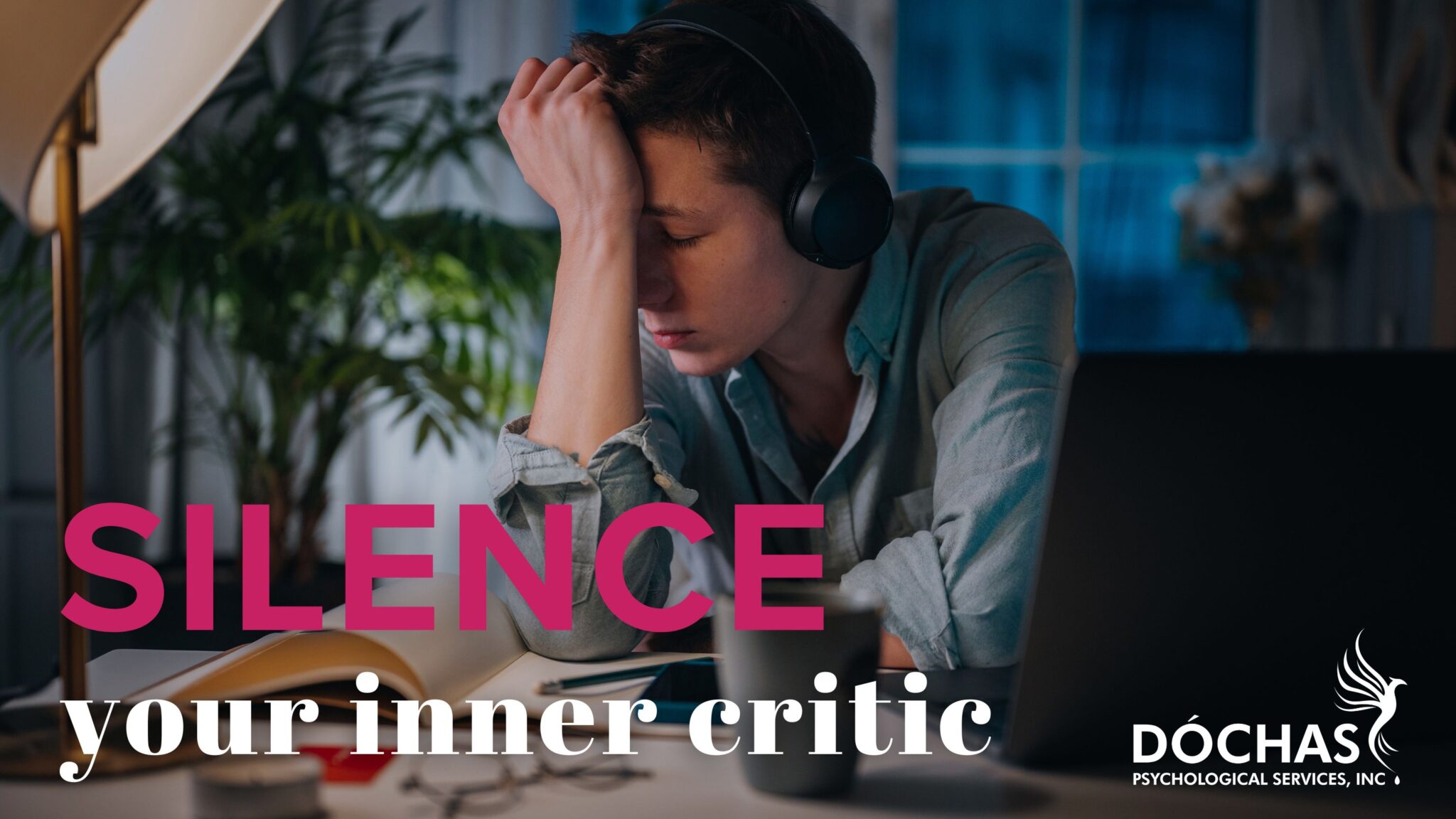You know that moment when you are absolutely crushing it, and then, out of nowhere, the inner critic whispers, “Actually, you have no idea what you’re doing.” Suddenly your accomplishments feel like they came from sheer luck, your credentials feel like a typo, and you’re convinced that everyone will soon realize you’re a total fraud.
Congratulations! You’ve just been visited by the world’s most unwelcome guest: Imposter Syndrome. It’s Renee on the blog and I’d like to explore how to work through the negative effects of imposter syndrome—feel free to free to check out my video on silencing your inner critic here.

Understanding the Inner Critic
Imposter syndrome is a master of disguise. Sometimes it dresses up as humility, to make you second guess every compliment. Other times it masquerades as perfectionism to keep you chasing unrealistic standards. Sometimes it’s disguised as realism to convince you that your success is just a coincidence.
In all these cases, it becomes a negative internal voice that is often rooted in fear and insecurities, making you feel like you don’t belong, even when you’ve earned your place. Many people experience this inner battle, particularly in new roles or situations. It’s common for students, people in helping professions, those in highly competitive fields, creative professionals, and entrepreneurs to experience symptoms of imposter syndrome. When their inner critical voice dominates, it can lead to anxiety, low self-esteem, and even burnout.
The Cost of Listening to the Inner Critic
While the inner critic may seem like it’s trying to protect you from failure, in reality, it’s holding you back. Left unchecked, this critical voice can have detrimental effects on both your mental health and your ability to thrive:
- Increased anxiety and stress: Constantly feeling like you’re not good enough keeps you on edge, perpetuating a cycle of worry and tension.
- Lowered self-esteem: As you question your abilities, your confidence dwindles. You might find yourself avoiding opportunities for growth out of fear of failure or exposure.
- Burnout: The pressure to perform flawlessly and compensate for feelings of inadequacy can lead to physical and emotional exhaustion.
- Limited growth: The fear of being “exposed” often leads to avoidant behaviours. You might avoid taking risks, trying new things, or stepping out of your comfort zone, which ultimately limits your personal and professional growth.
How to Foster a Kinder Inner Voice
Silencing the inner critic requires conscious effort and a shift in how you respond to self-doubt. Here are some strategies to quiet that voice and cultivate a more compassionate relationship with yourself:
1. Recognize the Critic for What It Is
The first step in silencing your inner critic is simply acknowledging that it exists. When you hear that critical voice, label it as your imposter syndrome talking – not as objective truth. Recognizing that your feelings of inadequacy are a psychological pattern, rather than a reflection of reality, allows you to begin challenging the narrative.
2. Reframe Negative Thoughts
When your inner critic tries to undermine your achievements, challenge those thoughts. Instead of thinking, “I was just lucky to get this job,” remind yourself of the effort and skill that led to your success. Shift from self-criticism to self-reflection: ask yourself what you’ve learned and what strengths contributed to your accomplishments.
3. Practice Self-Compassion
Often, the inner critic is driven by an underlying fear of failure or rejection. Instead of responding with harsh judgment, practice self-compassion. Treat yourself with the kindness and understanding you would offer a friend. This doesn’t mean ignoring mistakes, but recognizing that everyone is human, and growth comes from learning, not perfection.
4. Celebrate Your Wins! Even Small Ones.
Your inner critic tends to minimize your successes and magnify your flaws. To counteract this, make a habit of celebrating even the smallest victories. Acknowledge your achievements, no matter how trivial they may seem, and take pride in the effort it took to reach them. By regularly affirming your wins, you build resilience against self-doubt and lack of confidence.
5. Seek Feedback from People you Trust
Sometimes, the inner critic can distort your perception of reality, making it difficult to see your strengths. In these moments, seek out feedback from trusted friends, colleagues, or mentors. They can offer a more balanced perspective and remind you of your worth and contributions. When imposter syndrome starts to creep in, their insights can help ground you in reality.
6. Keep a Journal
Writing can be a powerful tool for combating the imposter within. Start a journal where you regularly document your accomplishments, the compliments you receive, and any positive feedback you get. When the inner critic gets loud, refer back to these entries to remind yourself of your real abilities and the concrete evidence of your success.
7. Accept Imperfection
One of the main messages of the inner critic is the belief that anything less than perfection is failure. Accepting that mistakes and imperfections are part of the human experience helps release some of the pressure you may put on yourself. Instead of aiming for perfection, focus on progress and learning.
8. Therapy for Deeper Work
If your inner critic is particularly loud, therapy can help uncover the deeper roots of these thoughts and provide strategies to manage them. Please reach out to us at Dóchas at 780-446-0300 or info@dochaspsych.com. Book an in-person appointment in Spruce Grove or a virtual appointment in Alberta with one of our therapists here.
Your Inner Critic Is Lying

I love how researcher Dr. DeCandia Vitoria described imposter syndrome. But here’s the good news: You have the power to rewrite this story, replacing the harsh inner voice with self-compassion and self-worth. The imposter within thrives on doubt, insecurity, and fear of failure, but you don’t have to let it define you. By learning to recognize and challenge this inner critic, you can begin to free yourself from its grip and embrace a more authentic view of yourself.
Remember, you are not an imposter – you belong, you are enough, and you’ve got this!
About Dóchas Psychological
Dóchas Psychological Services is a well-established and trusted therapy clinic located in Spruce Grove, Alberta. At Dóchas we value the idea that everyone deserves a safe space. Through connection and education, our team works hard to build a trustworthy relationship with each of our clients. It is our goal to create a community for our clients to feel like they belong.
Disclaimer
Information provided through Dóchas Psychological Services blogs or vlogs is meant for educational purposes only. They are NOT medical or mental health advice. You can read more about our disclaimer here.









